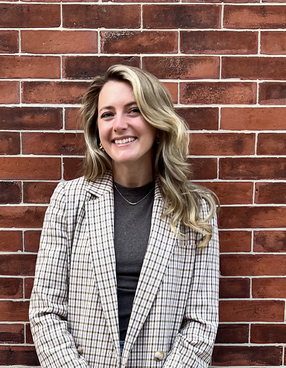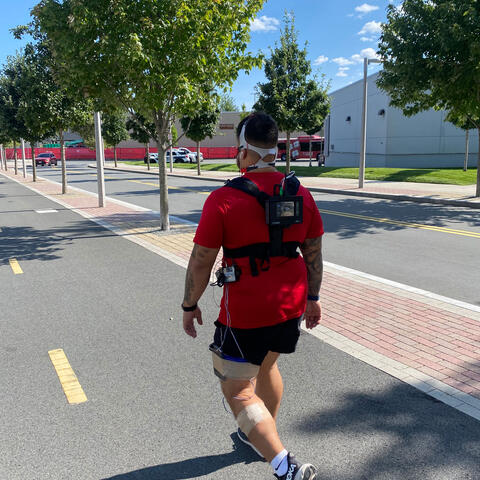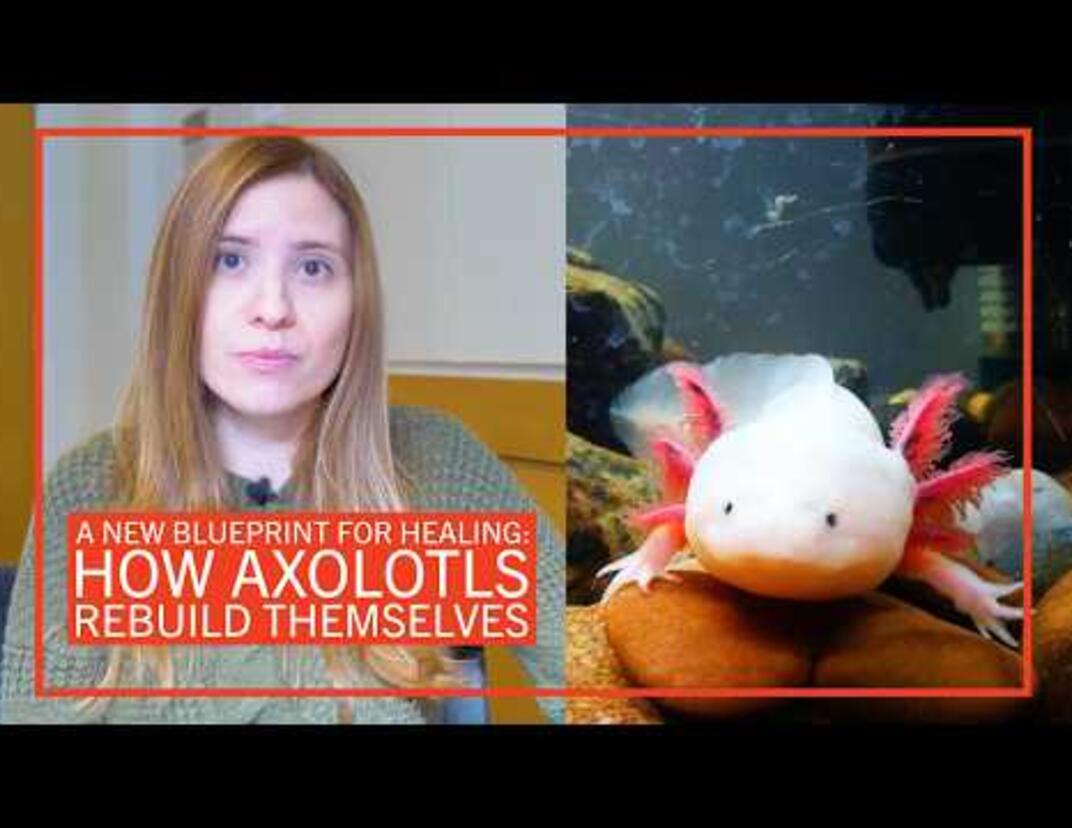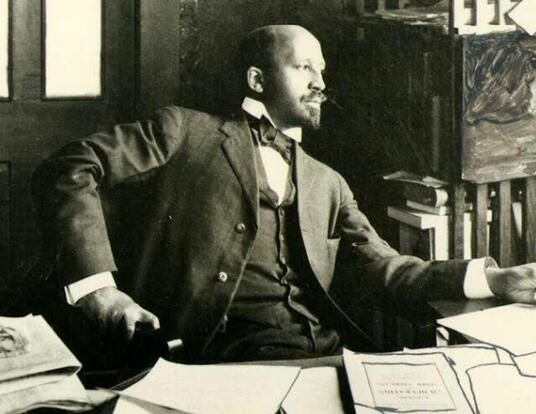Studying the Stigma of Sexual Violence
Emily Mellen, PhD candidate

Research at Risk: Since World War II, universities have worked with the federal government to create an innovation ecosystem that has yielded life-changing progress. Now much of that work may be halted as funding is withdrawn. Find out more about the threats to medical, engineering, and scientific research, as well as how Harvard is fighting to preserve this work—and the University's core values.
Emily Mellen is a PhD candidate in clinical psychology at Harvard Griffin GSAS, where she works in the Biopsychological Effects of Stigma (BEST) Lab. Mellen talks about her research on sexual violence, why it is critical to understand the stigma surrounding it, and her experience mentoring three undergraduates.
Severe Symptoms

Early on in my graduate program, when I was doing clinical work, I noticed that patients had a harder time disclosing and seeking help after sexual violence than they did following other forms of trauma. In many cases, their mental health symptoms also tended to be more severe, and they often had a harder time finding treatment that was effective, accessible, and delivered by providers who understood what it meant to experience sexual trauma.
Sexual violence stigma is the additional social and environmental stress that folks who have experienced sexual violence have to deal with, as opposed to those who have endured other types of trauma. For example, people who experience sexual violence may be told that the trauma was their fault because of what they were drinking or what they were wearing, and it may be taken less seriously. It is also important to emphasize that sexual violence doesn’t happen at random; it happens because a person sees some aspect of your identity as not equivalent in power to their own, due to your age, gender identity, sexual orientation, race, disability status, or a combination of these and other factors. Due to this intersection between sexual trauma and identity, people who experience sexual violence may feel like they were victimized because of something wrong with them, rather than a choice that a perpetrator made to violate a survivor’s bodily autonomy.
As part of my dissertation research, I developed and tested a self-report measure of sexual violence stigma and embedded it in two population-based samples of survivors, one in the US and one in Sweden. In both samples, a greater sexual violence stigma burden was associated with more severe symptoms of anxiety, depression, and post-traumatic stress disorder (PTSD). I also developed a measure of structural sexual violence stigma and found that within the US, survivors living in higher versus lower sexual violence stigma states had more severe symptoms of anxiety, depression, and PTSD.
In the future, I hope to build on this work so that I can ultimately make recommendations to clinicians regarding stigma-informed treatment of survivors of sexual violence.
A Language for the Unspeakable
As a post-baccalaureate research assistant at McLean Hospital, I often encountered patients who had experienced sexual violence, even if that trauma wasn’t what brought them to the hospital. Many hadn’t even disclosed this to their mental health providers. In speaking to these patients, I was moved by how this deep, traumatic pain was being forced into isolation. I wanted to understand why sexual trauma was considered unspeakable.
Culturally, there is a widespread, stigma-fueled misconception that the number one thing survivors want is intense retribution and punishment or to “ruin the life” of the offender. There are folks for whom that is the case, but in my experience, what survivors typically want is recognition and understanding that what happened to them did happen, that it was unacceptable and not their fault, and that they deserve justice and recourse.
All of these basic considerations are automatically provided to survivors of most other forms of trauma. If someone was mugged, no one would say they asked for it, or it wasn’t a big deal, or they didn’t deserve to get their belongings back. But that is exactly what we say to survivors of sexual violence.
When I feel like I can help my patients, when I can give them language for an experience they might not previously have had language for and help them understand that these false narratives are coming from their environment, not something true about them, it is the biggest possible reward and motivation for me in my work. I sincerely hope that what I do can be transformative for survivors.
BEST Mentor
At Harvard, I have had the opportunity to mentor three undergraduate research assistants and thesis students. Chloê Georgeaux-Healy wrote a thesis on the intersection of sexual violence and disordered eating and Do Yeon Kim completed a thesis on image-based sexual violence. Hanna Johnson was a research assistant who helped me develop my structural sexual violence stigma measure, the first of its kind and a huge contribution to my dissertation.
All three of these students are phenomenal, and I learned a lot from working with them. It was a privilege to be part of their professional development. Professor Mark Hatzenbuehler is the head of the BEST lab, and I can’t say enough about his value to me as a mentor. His example is what has inspired me to be an equally good mentor to these and all of my future students and mentees.
Get the Latest Updates
Join Our Newsletter
Subscribe to Colloquy Podcast
Simplecast





